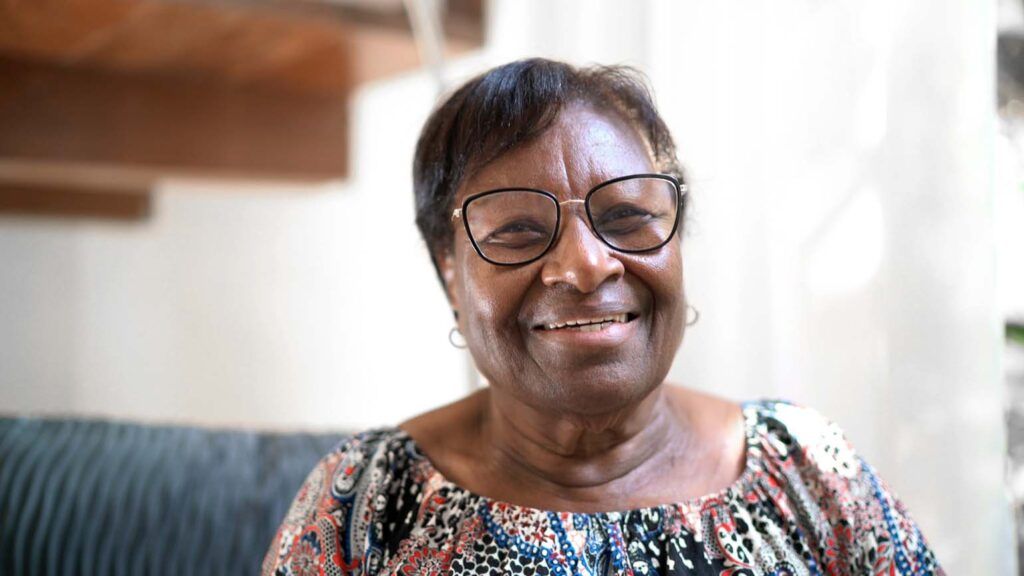It’s a good bet that, for your older loved one, home is where the heart is. As a family caregiver, it’s also likely that you want to do everything in your power to allow your loved one to remain at home, or “age in place” for as long as possible. When an illness, chronic condition, disability or injury comes into play, it becomes more difficult for an older adult to remain independent in his or her own living environment. Yet there are certain things you can do to make home life safer and more comfortable for your loved one in order to stave off a move to a care facility.
The benefits of remaining at home include privacy and independence, as well as access to friends, family and familiar places like stores, restaurants, medical offices and parks. Your loved one may have put years into paying for and keeping up a home and feels strongly about enjoying the fruits of that labor now. When older adults remain in their communities, other people can reap benefits, as well, from their elders’ vast experience and wisdom. Older adults can be wonderful friends and neighbors and may even act as volunteers, mentors or co-workers to those who are younger.
If you wish to enable your older family member to live at home for as long as possible, here are some important steps you can take to make it more possible:
- Get a home safety assessment
Evaluate your loved one’s home safety issues with an in-person assessment from a geriatric care manager. This will look at how the present housing situation affects your loved one’s safety and quality of life. It should also include an evaluation of any possible impairments your loved one may have that could impact activities of daily living. Important topics to address range from his or her ability to prepare meals, manage medications, drive, pay bills, bathe and groom and keep the house clean and organized. Learn more information on this process.
- Have a family conversation
If a safety assessment and doctor’s advice give you the green light, have a discussion with others in your support network. Get together with your loved one and other family members to put all your concerns on the table. Discuss whether you’ll be able to pull together to give your loved one the assistance he or she may need to remain at home. Can you and others arrange to visit frequently and pitch in on household chores and yard work? Who will be close by at any given time in case of emergency? Will you need to equip your loved one with technologies like personal navigational devices and home sensors that can make it safer to live independently? Can you help with transportation issues, as needed? Is it possible to hire an in-home care aide to handle daily tasks or cooking and to spend quality time with your loved one? How can you make the home safer? There are many ways to do this, including installing ramps, slip-proofing floors, and making modifications to the bathroom like safety rails and a walk-in shower or tub. You can even get pill boxes that are designed to set out your loved one’s medications for a whole week. Learn more ideas here.
- Explore resources for support services
Gather as much information as possible on the many services that are available for older adults who live independently. You may tap into these via your local and state offices on aging or social services and senior centers, as a start. Depending on what your community offers, you may find help with housekeeping, transportation, yard services, meal deliveries, and even financial counseling. If your loved one has trouble walking, you may want to check into whether Medicare covers a walker or electric chair or scooter. Does a local senior center offer opportunities for your loved one to socialize and engage in fun activities? For more advice on support services to help your loved one grow older at home, as well as tips for caregivers in this situation, go to the National Institute on Aging’s website.
- Get support for yourself
Your emotional well-being makes you a better caregiver and can have a big impact on how long your loved one is able to remain at home. In one study, nursing home placement for Alzheimer’s patients was delayed by 28 percent when their spouse caregivers received specialized counseling and support intervention. The caregivers underwent individual and family counseling, support group participation and on-going telephone counseling. The study concluded that “greater access to effective programs of counseling and support could yield considerable benefits for caregivers, patients with Alzheimer’s disease and society.”
The Administration for Community Living (ACL) is another excellent resource for services, research and education to help older adults and people with disabilities choose where to live. ACL also helps people who have unexpected needs, such as after a fall or an accident, to find services, and offers information on assistive technologies.





